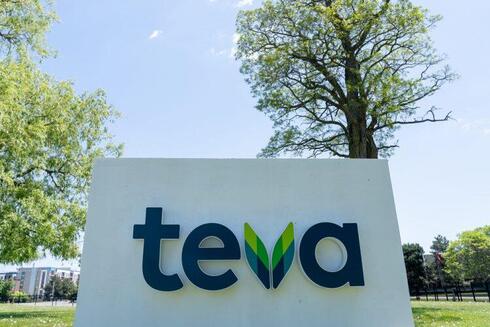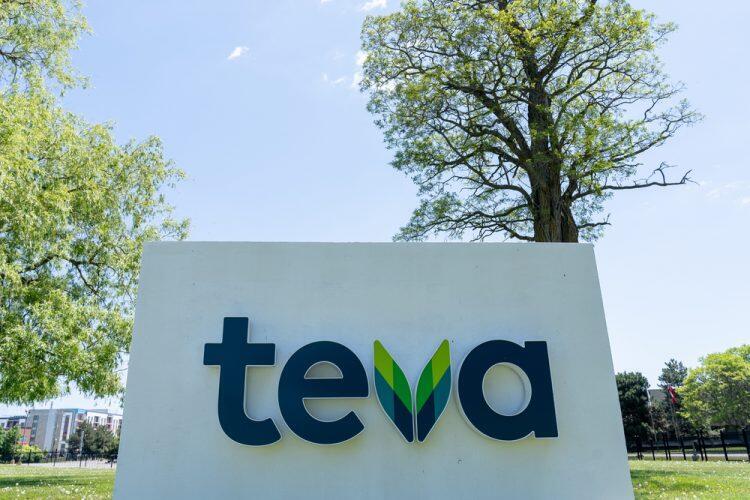
Teva reaches $4.35 billion settlement in U.S. opioid lawsuits, shares surge
Teva is set to pay state and local governments up to $3.7 billion in cash over 13 years plus a contribution of $1.2 billion worth of the opioid overdose reversal drug naloxone
Teva Pharmaceutical Industries on Tuesday announced a $4.35 billion proposed nationwide settlement that could resolve thousands of lawsuits over the drugmaker's alleged role in the U.S. opioid epidemic.
The proposal calls for Teva to pay state and local governments up to $3.7 billion in cash over 13 years plus a contribution of $1.2 billion worth of the opioid overdose reversal drug naloxone. Teva also will pay approximately $100 million to Native American tribes and pay attorneys fees incurred by the states, local governments and tribes.
Teva shares surged by 17.4% in after hours trading on Wall Street.
Teva's proposed settlement would allow state and local governments to opt for additional cash in lieu of an allotment of the overdose medication, at a value of 20% of the drug's list price.
The settlement's cash portion is higher than Teva's chief executive suggested in May. CEO Kare Schultz told analysts at the time that he expected the company to pay around $2.6 billion in cash and medicine to reach a nationwide settlement.
Teva, which still has net debt of some $20 billion, had sought a deal featuring less cash and more medicines, but some states and counties were opposed, questioning the value of the medicine, produced far more cheaply than the prices used in the settlement agreements.
“We are pleased to have reached a nationwide agreement in principle, pending participation by states and subdivisions, to resolve the majority of our costly legacy opioids litigation, and importantly, make critical medicines available to those most impacted by the U.S. opioid epidemic,” said Kåre Schultz, Teva's President and CEO. "We are excited to share Teva's updated long-term strategic and financial objectives through 2027 on our quarterly earnings call. With our strong foundation of generic and OTC business, our focused specialty pipeline and our significant biosimilar pipeline, we are strategically positioned to seize market opportunities and create long term growth."
Teva also reported its results for the second quarter of the year, revealing revenue of $3.8 billion, which was higher than expected. Teva also provided a pleasant surprise with Non-GAAP diluted EPS of $0.68. Cash flow generated from operating activities reached $123 million, while free cash flow was at $301 million.
However, Teva reduced its prediction for cash flow generated from operating activities of COPAXONE revenues this year to approximately $700 million versus the previous outlook of approximately $750 million. As a result, it now expects revenues of $15.0 - $15.6 billion in 2022 vs. the previous range of $15.4 - $16.0 billion.
Teva's settlement is contingent on separate settlements by AbbVie's Allergan unit. Teva acquired Allergan's generic drugs business in 2016.
For the Teva deal to take effect, Allergan must reach its own nationwide opioid settlement, and the two companies must settle a dispute over the amount Allergan owes Teva for claims filed prior to the 2016 sale.
The Teva settlement will not be finalized unless a sufficient number of state and local governments agree to accept the terms. Teva has already agreed to settlements with West Virginia, Texas, Florida, Rhode Island and Louisiana, and the value of those will be included in the proposed $3.05 billion cash payout.
The state of New York will not participate in the settlement, and continues to seek a judgment against Teva. A New York jury found the company responsible for the state's opioid crisis in December.
U.S. states, cities and counties filed more than 3,000 lawsuits against opioid manufacturers, distributors and pharmacies, accusing them of downplaying their addiction risk and failing to stop pills from being diverted for illegal use.
The U.S. opioid crisis has caused more than 500,000 overdose deaths over the past two decades, including more than 80,000 in 2021 alone, according to government data.
The company's insistence on including drugs as a major component of its opioid settlements has been a sticking point in past negotiations.
Teva in 2019 proposed to settle its nationwide opioid liability for $250 million in cash and $23 billion in contributed medicines that was rejected by state and local governments.














